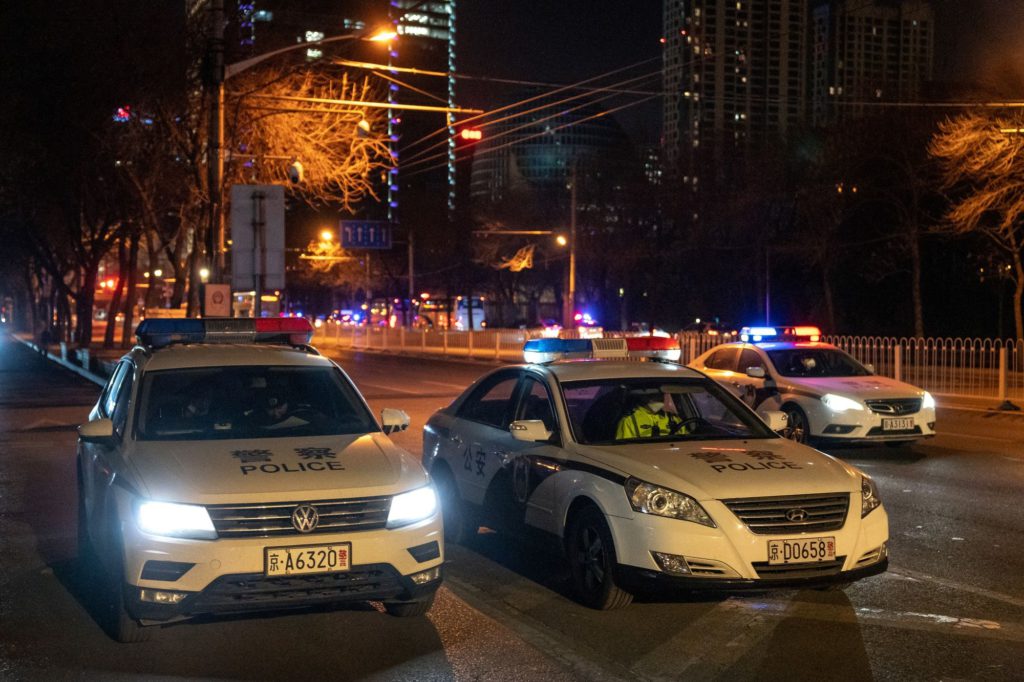The Chinese city of Zhengzhou shuttered hundreds of buildings and apartment blocks hours after lifting broader lockdown measures, as officials strive to make their Covid controls more targeted in line with Beijing’s directives.
(Bloomberg) — The Chinese city of Zhengzhou shuttered hundreds of buildings and apartment blocks hours after lifting broader lockdown measures, as officials strive to make their Covid controls more targeted in line with Beijing’s directives.
The city, home to Apple Inc.’s largest manufacturing site in China, said late Tuesday that it was lifting a lockdown of its main urban areas put in place five days ago as Covid cases climbed. Authorities then issued a lengthy list of buildings that would be declared high risk spanning the greater Zhengzhou region, which means they will continue to be subject to lockdown-style curbs.
The shift comes after China’s top health officials in Beijing reinforced an order for local cadres to avoid excessive curbs in containing the virus, following weekend protests where demonstrators took to the streets in several major cities in opposition to the stringent Covid Zero policy.
As of Nov. 30, Zhengzhou will remove so-called mobility controls — a euphemism for lockdown — and replace them with “normal Covid-combating measures,” according to a post on the local government’s official WeChat account. Businesses will be allowed to resume operations in an orderly manner, and people outside of the high-risk areas won’t be subject to regular mandatory Covid tests as long as they don’t leave home.
Beijing is urging local authorities to adhere to a 20-point playbook for virus control issued just over two weeks ago after a meeting of the Politburo Standing Committee, China’s top leadership body. While the guidelines caution against broader lockdowns and excessive mass testing, officials on the ground have struggled to control outbreaks in a more targeted way — instead reverting to the cruder, wider measures of old.
Read more: China’s Lockdowns Surge in Week Since Covid Policy Adjusted
Tough Task
Zhengzhou has adjusted its restrictions a number of times over the past few weeks, with tensions at the vast Foxconn Technology Group factory known as “iPhone City” putting its response in the global spotlight.
A lockdown of the district around the plant was lifted Nov. 9, and replaced with a web of high-risk areas that included the factory, which is currently in a so-called closed loop to keep operating. There have been no statements from authorities in the three weeks since to indicate the situation around Foxconn’s plant has changed. On Wednesday, the district said it was adjusting restrictions to bring them into line with wider Zhengzhou’s move, but it was unclear whether that would affect the factory.
The city’s experience shows the difficulty officials have meeting Beijing’s twin priorities of wiping out Covid outbreaks, while being less disruptive to people’s lives and the economy. Anger at restrictions and their possible role in stymieing the response to an apartment block fire in Xinjiang, northwest China, sparked the weekend’s demonstrations, unprecedented during President Xi Jinping’s tenure.
Goldman Sachs Group Inc. said on Monday that it saw a 30% chance of China exiting its tough Covid approach before April, earlier than widely anticipated, because of the public pushback.
Zhengzhou’s iPhone plant has also seen unrest, including a rare violent protest last week after almost a month under tough restrictions intended to contain an outbreak within the factory and enable employees to continue production.
Foxconn has been struggling to secure enough workers to crank out the latest iPhone 14 Pro devices, the most sought-after of Apple’s latest handset models, as many left outbreaks on the campus. The Taiwanese company is offering various incentives to retain existing workers while luring former employees back.
Zhengzhou’s move to lift blanket lockdowns may help with staffing shortages at the Foxconn plant, a person familiar with the matter said, adding that the situation remains fluid.
Turmoil at the plant is likely to result in a output shortfall of close to 6 million iPhone Pro units this year, Bloomberg News has reported.
Analyst Ming-Chi Kuo of TF International Securities warned the labor protests in China could mean iPhone Pro shipments will be 15 million to 20 million less than expected. That projection is too extreme and the shortfall is likely to be much less, the person said.
–With assistance from Jacob Gu, Lin Cheng and Li Liu.
(Updates with latest statement from district where iPhone plant located in seventh paragraph.)
More stories like this are available on bloomberg.com
©2022 Bloomberg L.P.











